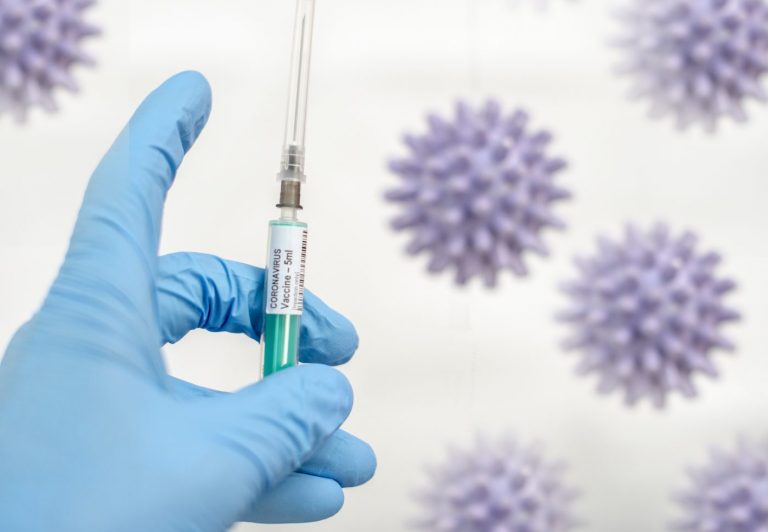
Almost a year from the start of the global pandemic, there is hope on the horizon with several vaccines already approved and in the process of being rolled out. But the sheer scale of the need means more options are needed. What can we expect in the next wave of vaccines and are more approvals on the near horizon?
On the week that Biden officially takes over from Trump in the White House he has inherited a number of big challenges from his predecessor. One urgent and overriding problem is how to vaccinate America’s more than 300 million inhabitants against infection with SARS-CoV-2 as quickly as possible.
There has been an unprecedented surge in research and development in the pharma and biotech industry over the last 10 months. According to the World Health Organization, which Biden did not hesitate to rejoin on his first day in office, there are almost 250 vaccines in development to protect against COVID-19. Of these, 64 have reached the stage of being tested in clinical trials.
Around the world 10 different vaccines have so far been approved to vaccinate people against SARS-CoV-2 infection. So far only two of these—mRNA vaccines developed by US biotech Moderna and a collaboration between German biotech BioNTech and US big-pharma Pfizer—have been approved for use in the U.S.
For most infectious diseases, a choice of 2-3 vaccines is plenty and normally sufficient to address the needs of the population. However, the massive scale of the need for a vaccine to protect against COVID-19 means two vaccines is simply not enough. Manufacturing cannot keep up with demand, especially as both the Moderna and BioNTech/Pfizer vaccines are also in high demand in other countries.
This leaves the stage open for new players to enter in the coming weeks and months. According to the McGill University COVID-19 vaccine tracker site, there are currently 20 vaccines undergoing phase III trials. Some of these are more promising than others, but realistically which vaccines are likely to be approved next in the U.S.?
Johnson & Johnson’s non replicating viral vector candidate
Johnson & Johnson subsidiary company Janssen Pharmaceuticals is currently conducting probably the biggest phase III trials of a COVID-19 vaccine yet. Two ongoing trials, which jointly include 90,000 participants, of its recombinant, non-replicating adenoviral vector vaccine are ongoing.
“Our COVID-19 vaccine program leverages Janssen’s AdVac technology, which is the same technology used to develop Janssen’s European Commission-approved Ebola vaccine regimen and to construct its HIV, RSV and Zika vaccine candidates,” Rick Nettles, M.D., vice president U.S. Medical Affairs, Infectious Diseases & Vaccines, at Janssen, told Clinical Omics.
Phase III results permitting, this vaccine is a good bet for being the next approved vaccine in the U.S., as results are expected in the next few weeks for these trials.
“However, as this trial is dependent on disease events, the timing is approximate,” notes Nettles. “If the single-dose vaccine is shown to be safe and effective, the company expects to submit an application for Emergency Use Authorization with the U.S. Food and Drug Administration shortly afterwards, with other regulatory applications around the world to be made subsequently.”
Unlike the BioNTech/Pfizer and Moderna vaccines, which require storage at -70°C (-94°F) and -20°C (-6°F), respectively, the Jannsen vaccine candidate does not require these extremes.
“We estimate at launch that our vaccine candidate will remain stable for a maximum of two years at -20 °C, and a maximum of three months of which can be at temperatures of 2-8 °C. This makes the vaccine candidate compatible with standard vaccine distribution channels and would not require new infrastructure to get it to the people who need it,” says Nettles.
CureVac and Bayer’s mRNA candidate
German biotech CureVac has somewhat lagged behind its mRNA competitors Moderna and BioNTech, but may make up for that by producing a cheaper and easier to transport mRNA vaccine.
“Unlike other mRNA technology approaches, we do not use chemically modified mRNA. Instead, our mRNA is specifically optimized to achieve improved protein production. Due to the improved protein production, we can work with low mRNA doses and still generate a sufficient immune response,” says Thorsten Schüller, vice president of communications for CureVac.
“We have seen that our vaccine candidate remains stable at refrigerator temperature for at least three months. At room temperature, it is available as a ready-to-use vaccine for up to 24 hours.”
CureVac announced earlier this month it would be partnering with German big pharma Bayer to help get its vaccine candidate to market. A strategy used successfully by BioNTech with its Pfizer partnership. While CureVac’s 35,000 participant phase III trial is currently due to finish in March, it may be that this new partnership will help speed up the completion of the trial and subsequent approvals.
Bayer says it started talks with CureVac in mid-2020 and the recent agreement is a conclusion of these discussions. “The cooperation we have agreed on is well timed. Because now for CureVac it is only about getting the vaccine approved,” says Anne Jorgal, Spokesperson for Bayer Pharmaceuticals.
Although it seems likely this vaccine will soon reach the approval stage, it is uncertain when it will reach the U.S., as the fact that both companies involved are based in Europe makes it seem likely that European approval and distribution will be prioritized.
Novavax’s protein subunit candidate
U.S.-based vaccine developer Novavax are also at Phase III with their protein subunit vaccine. The other big players with this kind of vaccine, a collaboration between Sanofi and GSK, were forced to delay their trials and rollout plans in December 2020 when their antigen protein failed to trigger a good enough immune response in early trials.
The company finally announced the initiation of a 30,000 participant trial in the U.S. and Mexico earlier this month, after manufacturing problems caused delays, which is due to complete in March.
It also has an ongoing 15,000 participant phase III trial in the U.K. that is due to report initial results later this month.
Novavax has existed for nearly 30 years and has yet to produce a successful vaccine, but the company hopes their COVID-19 candidate will change this. It received a $2 billion bailout from the Coalition for Epidemic Preparedness Innovations and the U.S. government in November—a sign of some confidence in their technology.
If the company gets approval, it remains to be seen if it can cope with the large-scale manufacturing likely to be required.
Oxford University and AstraZeneca’s non replicating viral vector candidate
This two-shot vaccine is worth a mention as it has already been approved in the U.K. and in 10 other countries around the world. It has the advantage of being cheaper and easier to store than both the Moderna and BioNTech/Pfizer vaccines, which both require freezer storage.
The overall efficacy recorded for this vaccine in phase III was around 62%, significantly lower than the over 90% efficacy recorded for both Moderna and BioNTech/Pfizer at the same stage.
There were some significant problems with the late-stage trials for this vaccine with at least one treatment error recorded by the investigators. This error led to only half an initial dose being given to some participants before they received their second dose. The research team claim this group actually had increased immunity after their second shot of up to 90%, which has perplexed experts.
This confusion has led to a delay in authorization of this vaccine in both the U.S. and the E.U., which have more in-depth regulatory procedures, such as the requirement for an independent review, compared with the UK’s Medicines and Healthcare products Regulatory Agency. Current predictions suggest that it may be another few months before this vaccine gets the go-ahead in the U.S.
Best of the rest
While the vaccine candidates described above seem to be the most likely to achieve U.S. approval in the next couple of months, there are some other upcoming candidates that are definitely worth watching.
Inovio Pharmaceuticals seems the most likely to obtain a first approval for a DNA-based vaccine in the U.S. It had good results at Phase I in June 2020 and have an ongoing Phase II/III trial of almost 7000 participants, which had some setbacks in recent months including being required by the FDA to put a hold on the trial “pending responses by the company to additional questions from the agency about the trial and its CELLECTRA 2000 delivery device to be used in the trial.”
It’s currently uncertain when Inovio will release Phase III results and apply for approval, but they have an interesting technology and are definitely a company to watch.
Two other vaccines to watch out for—currently at an earlier stage of development – are those being developed by Arcturus Therapeutics in the U.S. and by Imperial College London and solid vaccine developer Enesi Pharma in the UK. Both of these are self-replicating RNA vaccines, which should overcome some of the issues involved with the first generation of RNA vaccines such as the need for cold storage.













